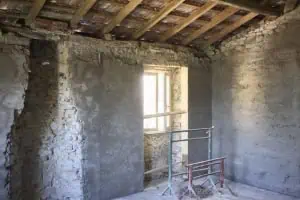Construction Industry Safety Licence
The construction industry in Italy is about to undergo a significant change in how businesses and self-employed workers manage safety on job sites. With the introduction of the construction industry safety licence, safety standards are set to rise. This new tool, brought in under Italian Decree-Law No. 19/2024, aims to enhance workplace safety, tackle the issue of undeclared work, and monitor accidents in the construction sector more closely. As of 1st October 2024, over 830,000 businesses and workers must take action to comply with the new rules.
Let’s explore what this new regulation means, who is affected, and the steps needed to ensure compliance.
Why the Construction Industry Safety Licence Matters
Workplace safety has long been a priority, especially in high-risk industries like construction. Accidents on building sites not only endanger lives but also bring financial consequences for businesses. The construction industry safety licence represents a proactive approach to managing safety risks. By introducing a points-based system for companies and self-employed workers, this new measure ensures that businesses maintain consistent safety standards across all operations. The ultimate goal is to reduce the number and severity of workplace accidents, creating a safer environment for everyone involved.
Furthermore, this system is designed to crack down on undeclared work – a persistent issue in the construction sector. Unregistered labour not only avoids tax and social security contributions but also bypasses safety regulations, putting both workers and businesses at risk. By introducing this licence, the government aims to create more transparency and accountability in the sector.
How the Licence System Works
The construction industry safety licence will operate as a credit-based system. All companies and self-employed workers in the construction sector must acquire this licence to continue operating on job sites. Businesses must apply for the licence from the Labour InspectorateBusinesses must apply for the licence from the Italian Labour Inspectorate. In the meantime, they can submit a self-certification stating that they meet the necessary requirements to obtain it.
While businesses have until 31st October 2024 to submit their applications, they should not delay. From 1st November, any company that has not applied for the licence will have to halt its operations on construction sites, which could lead to significant financial losses. In other words, applying for the licence is not just recommended – it is essential for continued business activity.
The government has introduced the self-certification option to avoid overloading the platform where they process applications. By staggering submissions, the government hopes to streamline the process and prevent delays. However, businesses should not rely solely on this temporary mechanism. They must submit their full licence application as soon as possible to ensure they comply with the new rules.

Who Must Apply for the Construction Industry Safety Licence?
The construction industry safety licence applies to a broad range of businesses and individuals in the sector. All companies, including sole traders, who operate in construction must obtain the licence. This includes both domestic businesses and those established in other EU member states, as well as non-EU countries, if they operate within Italy.
Self-employed workers, such as individual contractors, also fall under this requirement. Either the legal representative of a company or the self-employed worker must apply for the licence. If necessary, they can delegate this task to someone else, but they must provide the delegation in writing.
However, not all workers in the construction sector need to obtain the licence. For example, professionals who provide intellectual services, such as engineers, architects, and surveyors, are exempt from this requirement. These individuals typically do not manage construction sites day-to-day. The licence therefore targets those directly responsible for site safety and compliance.
Foreign Businesses and Workers
Even businesses established outside of Italy are not exempt from the construction industry safety licence. If a company or self-employed worker is based in another EU member state, they must either apply for the licence or provide proof of an equivalent document issued by the relevant authority in their home country. Businesses in non-EU countries must have the equivalent document recognised under Italian law. If no such document exists, foreign businesses must apply for the licence under the same rules as Italian companies.
This ensures a level playing field for all construction businesses operating in Italy, regardless of their country of origin. Safety standards must be upheld consistently, and this new licence system helps achieve that goal.
What Are the Requirements for the Construction Industry Safety Licence?
To qualify for the construction industry safety licence, businesses and workers must meet several specific requirements. These include:
1. Registration with the Chamber of Commerce, Industry, Crafts, and Agriculture:
All applicants must prove they have registered and are operating legally within the construction sector.
2. Compliance with training obligations:
Employers, managers, supervisors, and workers must have completed the necessary safety training required by law. This ensures that everyone on site knows their role in maintaining a safe working environment.
3. Valid insurance compliance certificate (Durc):
Businesses must hold a valid single insurance compliance certificate, demonstrating that they are up to date with social security contributions.
4. Risk assessment document:
Companies must have a current risk assessment document in place, as required by law. This ensures they have identified potential hazards and implemented measures to mitigate them.
5. Tax compliance:
A tax compliance certificate is also required, proving that the business is up to date with its tax obligations.
6. Appointment of a safety manager:
If applicable, businesses must have appointed a safety and prevention service manager, ensuring that someone is responsible for overseeing workplace safety on the job site.
What Happens If You Don’t Meet the Requirements for the Construction Industry Safety Licence?
If businesses or self-employed workers fail to meet these requirements, the Labour Inspectorate has the authority to revoke the construction industry safety licence. This can happen at any time if an inspection reveals that a company no longer meets the necessary conditions, such as the loss of insurance compliance or failure to maintain proper risk assessments.
However, the loss of one requirement doesn’t automatically invalidate the licence. It will remain in place, but businesses may face sanctions or other penalties under Italian law. The Labour Inspectorate will carry out random inspections to ensure compliance, so businesses must remain vigilant in maintaining their qualifications for the licence.
Finally …
The introduction of the construction industry safety licence marks a significant step forward in improving safety and transparency in the construction sector. By implementing this system, the government aims to protect workers, reduce the risk of accidents, and crack down on undeclared work. With the deadline fast approaching, businesses and self-employed workers should act now to ensure they meet the requirements and can continue operating without disruption.
If you need assistance with this matter or anything related to construction or renovation in Italy, please get in touch with us.





